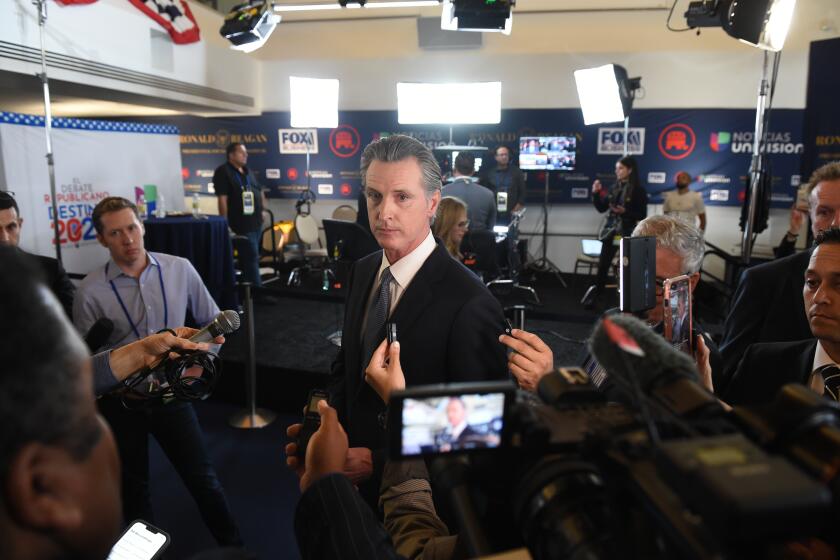Bars are gone, not the prison
There are few contemporary American writers whose work can absorb readers so fully and with such immediacy that the line between character and reader begins to seem dangerously thin. Among these few is the brilliant Mary McGarry Morris, who has written several exceptionally fine books, all of them so dense with dread and complexity that you are hard-pressed not to keep reading until her battered characters’ troubles have been resolved.
“A Hole in the Universe,” Morris’ most recent novel, is the superbly drawn story of Gordon Loomis, a man just released from prison after serving a 25-year sentence for the murder of a young pregnant woman. Huge, awkward and painfully aware of his limitations and his past, Gordon reenters the world without the necessary skills, social and otherwise, for dealing with everyday life. When he dresses for a job interview at the novel’s outset, “his thick fingers struggl[e] with the tiny collar button,” an image that encapsulates perfectly the nature of his new life, the enormous effort he has to expend on mundane things in order to fit into society again.
Gordon has friends and family eager to help him readjust to life on the outside, but Morris is too shrewd a storyteller to take their kindness at face value. Gordon’s brother Dennis, the family superstar, is almost manic in his attempts to improve Gordon’s life, dragging him to job interviews and family dinners, and to look at new housing that his brother can’t afford. His determined, willful optimism smacks of pride and self-protection. Dennis is so desperate to rehabilitate the family monster that he ignores Gordon’s actual needs and concentrates instead on forcing upon his brother the life he would like Gordon to have: a new condo, a high-paying job, a girlfriend. This is not to say that Dennis doesn’t have Gordon’s interests at heart, but the tragedy of Morris’ characters is that they are so consumed by their own needs that they co-opt others into their fantasies, interacting with them on a level that is dangerously lacking in reality.
Delores Dufault, a woman who plagues Gordon with phone calls and dinners and hearty, unexpected visits, is the apparent soul of kindness, but her selflessness is revealed as something darker. Though she pursues Gordon with shameless persistence, she’s also in love with another (married) man named Albert, and Gordon serves both as love interest and outlet for all her frustrated affection. “No!” she cries, when he calls at the last minute to refuse one of her dinner invitations, and Morris dissects her muddled despair with heartbreaking precision: “It was all the unanswered letters ... her prideless efforts to keep the conversation going, telling him things he so obviously had little interest in ... and the illicit sensation of speaking Albert’s name to another man, this man she had grown to care deeply about.... It suddenly seemed so twisted.... She knew it was, but she could not, would not, continue to be unloved, and so his cold disinterest and her desire had to exist on parallel tracks, unexamined. And now with their collision she wasn’t sure who she was berating, the fantasy lover or the socially blunted ex-convict.”
It’s the conflicting combination of frustration and sympathy we feel for Delores -- indeed, for all the main characters -- that makes “A Hole in the Universe” such a wrenching book. Even Dennis, short-sighted and pushy as he is, provokes a measure of compassion in the scenes with his wife and children, in which his responsibilities toward his new family seem precariously balanced against those toward his brother.
Eventually Gordon manages to scrape together a small but stable life, with a job at the local market and a few tentative friendships, but a sense of fragility and deep unease hangs over the story nevertheless. The novel is set in a once-affluent town now afflicted by poverty and crack dealers, and the violence in the air is a reflection of Gordon’s damaged life. Mulling over the changes in his old neighborhood, he notes: “Twenty-five years, and everything was different now.... Holdups were so commonplace, [his boss] had gone through three in four months. Last week a gang of girls had beaten up [another girl] in the school library for e-mailing one of their boyfriends. Expecting order and sanity, he had found a world gone awry.... Instead of meteors, airplane bolts and metal chunks fell from the sky. Untended babies plunge through open windows. But who was he, what right did he have to expectation, disappointment, indignation, of all people....”
His inability to forgive himself for a crime he may or may not have committed makes Gordon a simultaneously tortured yet decent protagonist, and on the strength of this ambiguity we are drawn through the novel to its fitful close. “A Hole in the Universe” is not exactly a mystery, but it has the tautness and suspense of one -- the sense, threaded through its pages, that something is genuinely at stake: Gordon’s redemption and acceptance by society, perhaps, and by proxy an assurance to readers that clemency wins out over chaos in the end. Readers of Morris’ “A Dangerous Woman” will know that the author is not exactly given to happy endings. But her vision in this novel is less harsh, more forgiving, more accepting of the need for grace. *
More to Read
Sign up for our Book Club newsletter
Get the latest news, events and more from the Los Angeles Times Book Club, and help us get L.A. reading and talking.
You may occasionally receive promotional content from the Los Angeles Times.






